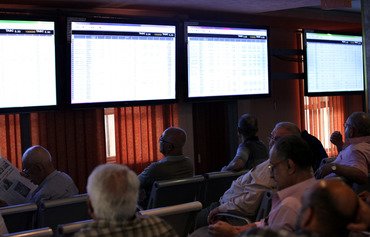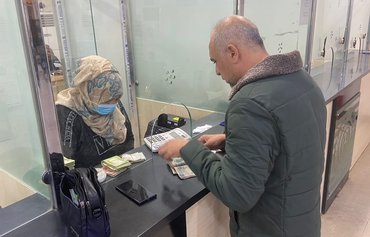The Central Bank of Iraq on Wednesday (November 28th) announced it was suspending the sale of US dollars through national banks to Iraqis planning to travel to Iran.
The decision comes in response to and compliance with US sanctions that seek to limit the activities of the Iranian regime that threaten international security.
A document posted on the Central Bank's website, signed by the bank's deputy governor Mundhir Abdul Qadir al-Sheikhli, expressly prohibits banks and licensed currency exchange offices from selling dollars to Iraqi travelers heading to Iran.
Citing a Foreign Ministry letter from September, the document states that the dollar will be banned from use in trade transactions between Iraq and Iran.
It calls on travelers to Iran to replace the US dollar with another currency.
The document is based on agreements and decisions issued by the US Treasury and the Federal Reserve, which require the cessation of financial transfers or transactions with Iran in dollars, said Central Bank spokesman Aisar Jabbar.
For at least three years, he told Diyaruna, Iraq's Central Bank has been committed to international resolutions that stipulate there be no transfer of dollars to Iran, and the recent decision is part of that commitment.
Restrictions on foreign currency
National banks and licensed exchange companies operate according to terms and conditions set by the Central Bank with regard to the selling of dollars to citizens wishing to travel to any country, and not only to Iran, Jabbar noted.
These terms stipulate that the sale of dollars, no more than $3,000 per traveler, be limited to use for tourism, official mission, Hajj and Umrah, medical treatment and studying abroad, he said.
The acceptance of purchase orders requires "presenting a valid passport, a travel ticket from travel and airline companies, and an entry visa, in addition to an official dispatch order for the applicant".
Money cannot be disbursed through sale outlets, unless the applicant is present at the banks and exchange companies in person. Applications from minors may not be accepted.
The Central Bank sets the sale price of one dollar at 1,200 Iraqi dinars, equal to the cost price plus a profit margin.
The US imposed two rounds of new sanctions on Iranian entities and individuals on August 6th and November 5th. These target the Islamic Republic's financial, commercial and industrial sectors, as well as energy and maritime transport.

![An Iraqi bank teller provides service to a customer on March 14th. [Photo courtesy of Rafidain Bank]](/cnmi_di/images/2018/11/29/15558-Iraq-bank-customer-600_384.jpg)





